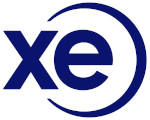And for those looking to use currency exchange firms in the future, it is important to bear in mind that differing regulatory requirements played its part in the Crown Currency Exchange collapse. Currency exchange firms in the UK can be either registered with or authorised by the Financial Services Authority (FSA) - and there is a big difference between the two. In the case of Crown Currency Exchange, the firm was registered with the FSA. Firms registered with the FSA are subject to much lighter regulation, mainly they are not obliged to hold clients’ monies in a separate account.
The non-standardisation of the rules and regulations applied to currency exchange firms is confusing for consumers, but one fact that clearly stands out is consumers are being poorly served with the lack of FSA uniformity and information in this sector. Many consumers would see a FSA logo on a company’s website and make the assumption that not only was their money completely protected from loss or theft, but that such funds would be covered by a compensation pay out were that company to go to the wall. Unfortunately, neither is true.
There are of course many reputable currency exchange firms that you can deal with and we have compiled some key points below to help you choose a foreign exchange services.
- To begin with find out if the company is registered with or authorised by the Financial Services Authority (FSA) if you are using a UK firm, or check with the relevant regulator if using a currency firm based overseas. In the UK, those that are just registered are subject to less complex regulatory requirements than firms which have full authorisation. Those currency exchange firms that are authorised will have more rigid structures in place to protect your money. For example, client money must be ring-fenced, which means it is held in a separate account with a bank and protected from being used by the company. Authorised companies must also hold a minimum amount of capital in their business. And they must also be able to demonstrate that they are fit and proper to run the business. Crown Currency Exchange was only registered with the FSA and so was not obliged to ring-fence customers’ money.
- Under the Payment Services Directive, effective from 1 November 2009, any business providing payment services must be authorised by or registered with the FSA. The distinction being that companies with payments averaging less than €3 million per month can register, whereas larger companies must go through the full authorisation process. Remember that companies that register with the FSA are not obliged to hold clients’ monies in a segregated account. Newly established brokers must be registered or authorised before they start trading, but those who were providing foreign exchange services on 25 December 2007 have until 25 December 2010 to become registered or 1 May 2011 to become authorised. However, these rules only cover firms offering payment services. They do not cover firms that offer over-the-counter currency exchange services. These firms are not obliged to become registered or authorised by the FSA - they need only register with HM Revenue & Customs.
- Irrespective of whether you opt for a registered or authorised foreign exchange company, in the UK no consumer’s funds are covered by any compensation scheme. When a company is authorised as a financial services firm, funds are covered by the UK’s Financial Services Compensation Scheme for designated investment business, but in this instance only certain currency option contracts are covered and foreign exchange transactions are generally excluded.
- When looking for guaranteed measures of protection, bear in mind that all foreign exchange services firms that have gone for FSA authorisation are bound to hold client monies in a segregated account. This offers a level of protection for consumers due to the fact it is ring-fenced and cannot be used by the company nor the bank. What’s more, authorisation also ensures that the firm has enough capital and its directors are fit and proper to run the business. Firms that have gone for FSA registration are subject to much lighter regulation and are not obliged to hold client’s monies separately.
- Pre-paid currency cards issued by major banks and building societies in conjunction with currency exchange firms are considered e-money products and are excluded from the Financial Services Compensation Scheme.
- Look out for those foreign exchange services firms that have got a good reputation. Make sure you feel fully satisfied with the answers you receive to the following questions. Who are their financial partners? Who do they conduct services for? Do they bank with reputable and financially stable institutions? Is the firm itself financially stable? How efficient is its payment and settlement service? What about online security?
This article was submitted by Deborah Benn, a journalist who specialises in personal finance for British expats via Expat Money Channel (www.ExpatMoneyChannel.com )




